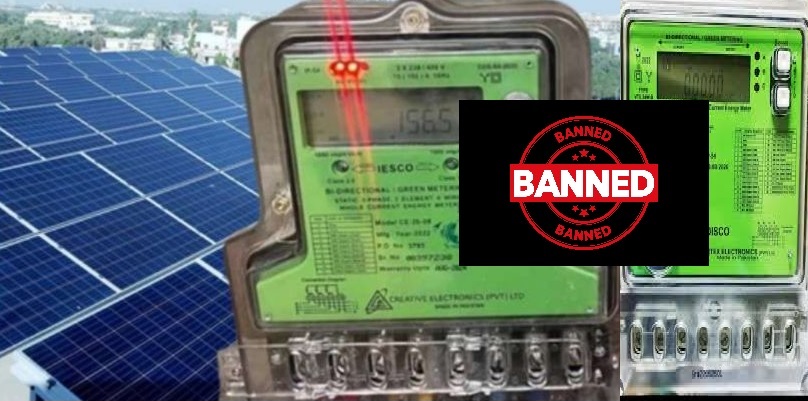Lahore Electric Supply Company (LESCO), a major electricity distribution company in Pakistan, has thrown a curveball at solar panel owners in Lahore. In a recent announcement, LESCO has mandated the replacement of existing “green meters” used in solar systems with more advanced “Advance Metering Infrastructure (AMI) meters.” This move, while intended to combat issues like overbilling and electricity theft, comes at a significant financial burden for consumers.
The Green Meter Phase-Out:
The green meters, previously the standard for solar connections, are being phased out by LESCO. According to Sarwar Mughal, Director of Customer Services, a notification has been issued enforcing this ban.
The Shift to AMI Meters:
LESCO will now issue a No-Objection Certificate (NOC) to purchase AMI meters for solar connections. However, the responsibility of acquiring these meters falls on the consumers themselves. This creates an additional financial hurdle as AMI meters are considerably more expensive than the green meters they are replacing.
The Cost Factor:
The price disparity between AMI meters and green meters is substantial. The report estimates a difference of Rs. 20,000 (approximately USD $115), a significant cost for many solar panel owners. This unexpected expense can be a major setback for individuals and businesses who have invested in solar energy for cost savings and environmental benefits.
Must Read: Government to Tax Dual Nationals, Tech Companies on Pakistan-Earned Income
The Rationale Behind the Change:
LESCO justifies the green meter ban by citing the potential for improved efficiency and reduced losses. AMI meters are equipped with advanced features that enable real-time monitoring of energy consumption, potentially helping to identify and address issues like overbilling and electricity theft.
The Impact on Consumers:
While the long-term benefits of improved grid management are undeniable, the immediate financial burden placed on consumers cannot be ignored. The unexpected cost of replacing green meters may discourage some from adopting solar power altogether.
Looking Forward:
The situation raises questions about the financial feasibility of solar energy for homeowners and businesses in Lahore. LESCO might need to consider potential support mechanisms or subsidies to ease the transition for existing solar users. Additionally, clear communication regarding the rationale behind the change, potential long-term benefits, and any available support programs is crucial for a smooth transition.
This unexpected policy shift presents both challenges and opportunities for solar energy in Lahore. While the potential benefits of improved grid management are clear, addressing the immediate financial burden on consumers is essential. Finding a balance between long-term goals and short-term costs will be key to ensuring the continued growth and success of solar energy in the region.




